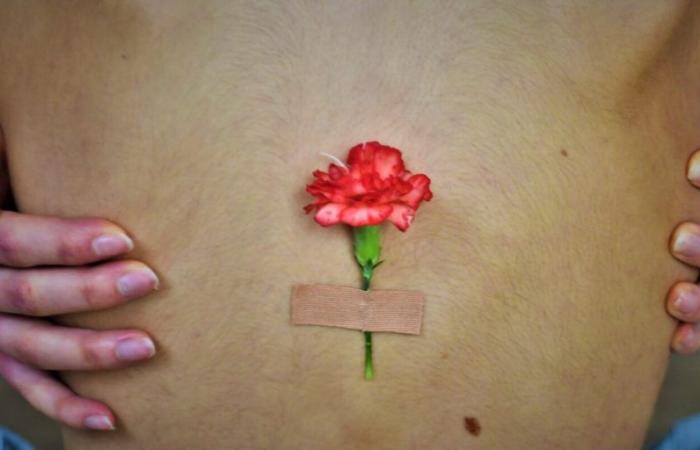COSENZA It is not only the company that provides the service that asks for sensitivity and attention from the Calabria Region, but also the patients and the multidisciplinary team that assists them. The real risk is the same as always: medical emigration only for those who can afford it. The alarm was raised by the Biolife company of Cosenza, a provider of out-of-hospital rehabilitation health services for patients with neurological and musculoskeletal problems since 2008. It has been accredited since 2009 and has been under contract with the ASP of Cosenza since the same year.
In 2016 he decided to provide rehabilitation services for patients suffering from Eating Disorders, also in this case with the desire to assimilate to public structures through the institution of accreditation and the contract with the ASP so that patients are guaranteed assistance by the ASP. Lately, however, a serious problem has arisen.
But let’s go in order and try to understand what we are talking about. Nutrition and Eating Disorders today affect over 55 million people worldwide, while in Italy the figure reaches 3 millionequal to approximately 5% of the population: 8-10% of girls and 0.5-1% of boys suffer from anorexia or bulimia (Aba Observatory and Istat data). A pathology that is still underestimated and on the rise and with an increasingly earlier onset especially among the very young, girls in particular, between 12 and 17 years old, and in some cases, even earlier, around 8-9 years old. From data from the Istituto Superiore di Sanità, on the Centers in Italy of the National Health Service dedicated to eating disorders, out of over 8000 users, 90% are female compared to 10% male; 59% of cases are between 13 and 25 years of age, 6% are under 12 years old. Among the most frequent diagnoses, anorexia nervosa stands out (42.3% of cases), followed by bulimia nervosa in 18.2% and binge eating disorder in 14.6%. Pathologies that constantly put the lives of those who suffer from them at risk and which, as highlighted several times by experts in the field, necessarily require, in the treatment phase, a multidisciplinary approach of professionals belonging to medical-internist and psychiatric-rehabilitation disciplines.
As revealed in a motion presented last January by regional councilors Alecci, Bruni, Bevacqua, Iacucci, Mammoliti and Muraca, «the lack of adequate structures means that very often families are left alone to face the first stages of this drama, effectively triggering a wandering in search of places of treatment in Italy and only later, when the situation is more often than not compromised, is the person and their family unit taken care of”. On that occasion the regional council was asked to formally express itself to the Government so that the refinancing of the Fund for combating Nutrition and Eating Disorders and the issuing of the implementing decrees necessary for the ‘inclusion of eating disorders in the Essential Levels of Assistance (LEA)’.
Only in 2024, without the first semester having finished, the ASP of Cosenza has spent over 270 thousand euros in favor of centers outside the region for the treatment of eating disorders. This is a huge figure which however only represents the “tip of the iceberg”. In fact, many patients are never diagnosed with this pathology, precisely due to the lack of services. Calabria also lacks epidemiological data. Patients who receive authorization for treatment at centers outside the region are, as a rule, only those who are very seriously ill and can afford to pay the costs. Since treatments extend over very long periods, it is necessary to abandon studies and work, in short, move away from one’s life and loved ones which, as supported by experts in the field, is absolutely dysfunctional to the treatment process. This healthcare migration does not have the features of the classics “journeys of hope” at the end of which there is a quick surgical intervention but, given the duration of the treatment process, it is a real emotional uprooting.
«The ASP of Cosenza was unable to propose the contract to purchase these services due to lack of funds»
«Despite the fact that the accreditation with DCA 300 of 05.12.2023 was issued in our favor, seven months ago – he explains to Courier of Calabria the sole director of Biolife Ettore Caroselli – the ASP of Cosenza, even if without fault, does not propose the contract to purchase these services. Given the continuing lack of contractualization for the new accredited services for patients suffering from eating and nutrition disorders, they will be suspended until further notice.” Caroselli highlights how “behind this impersonal communication” there is “a lot of effort, a lot of suffering for the workers, but above all for patients and their families”.
«It is not my intention – he states – to spectacularize people’s emotions and therefore I will limit myself to providing some dates and numbers. Meanwhile, the bureaucratic-administrative process that led to the current situation: the initial request dated 14 July 2016, it took seven and a half years to achieve accreditation (DCA no. 300 of 5 December 2023). «Instead, it has been two years since the authorization to operate – adds Caroselli – that the center has been providing services without compensation for daily activities, and the ASP could have purchased the services for seven months, but does not have the necessary funds to do so» .
«Only the intervention of the Region with additional funds could change the prospects»
«I am aware of the fact – the sole administrator of Biolife is keen to underline – that the accreditation came after the issuing of the decree on three-year funds for the structures, consequently the Asp used the sums transferred by the Region in favor of the structures present in its territory of competence. It therefore finds itself without funds and unable to fulfill its mandate to satisfy citizens’ health needs. Therefore only the intervention of the Region with additional funds could change the prospects. Just in recent days a letter was sent to all regional clinical governance to find a solution. As mentioned, I leave out the human aspects, because despite the human being at the center of everything, one could object that one does not govern with feelings or with the heart, but with reasoning and planning. Even from the “managerial-executive” perspective, the choice to contract the center would be right and justified; the data on healthcare mobility for treatments for patients with DCA/DNA are impressive. Since this long process began, and therefore since 2016, the ASP of Cosenza has spent millions of euros just on patient care at centers located outside the region.” «We must also consider – concludes Caroselli – that when people return they have no network, no support, except, in our case, the Biolife dispenser».
The multidisciplinary team for the treatment of D-NA: «We cannot abandon patients»
Caroselli’s appeal is added the multidisciplinary team for the treatment of Nutrition and Eating Disorders (or D-NA) trained in the sector through courses held by Dr. Dalla Ragione and various specific masters on D-NA. «We started more than ten years ago with the Adac association (Cosenza Eating Disorders Association, ed) as a support and awareness and prevention network and then managed to open a department for DNA at the Biolife medical center which was accredited. Despite that, we want to highlight our disbelief at the lack of response from the competent bodies who have not yet contracted places for nutrition and eating disorders at the Biolife facility. For almost two years the center has been providing services free of charge without any income, but with all costs, including staff costs. This situation is no longer sustainable by society. What worries us is the imminent and inevitable closure of the department with consequent abandonment of patients taken into care and those still in follow-up. In our Region there are no day or residential facilities and relocating patients would lead to an ineffective intervention because upon their return they would return to their daily routine. All this with an economic expense for the Regional Health System. We feel unheard, abandoned by the institutions but above all we feel bad about being forced to “abandon” patients who need concrete help in their homeland. Someone intervenes and listens to our and above all their cry for help.”
«We have many testimonies – highlights the multidisciplinary team – of paths that have been successfully completed or are going well with more than positive results. We have letters written by patients full of gratitude and gratitude. Who better than them can recognize that healing exists if followed by professionals trained in the sector? At this point we ask ourselves whether they are worthy of living their lives or whether we should abandon them to themselves, or rather to their illness. We are talking about a real epidemic, a social disease that unfortunately leads not only to mental death, but also to physical death. The numbers speak clearly, you can even die from DNA, in fact you can die and we don’t want to let the hope that lives in our girls die.” (fra.vel.)
Photos taken from the ADAC book “The cage with golden bars” (Kerit-LC Edizioni)
Corriere della Calabria is also on Whatsapp. Enough click here to subscribe to the channel and always be updated







